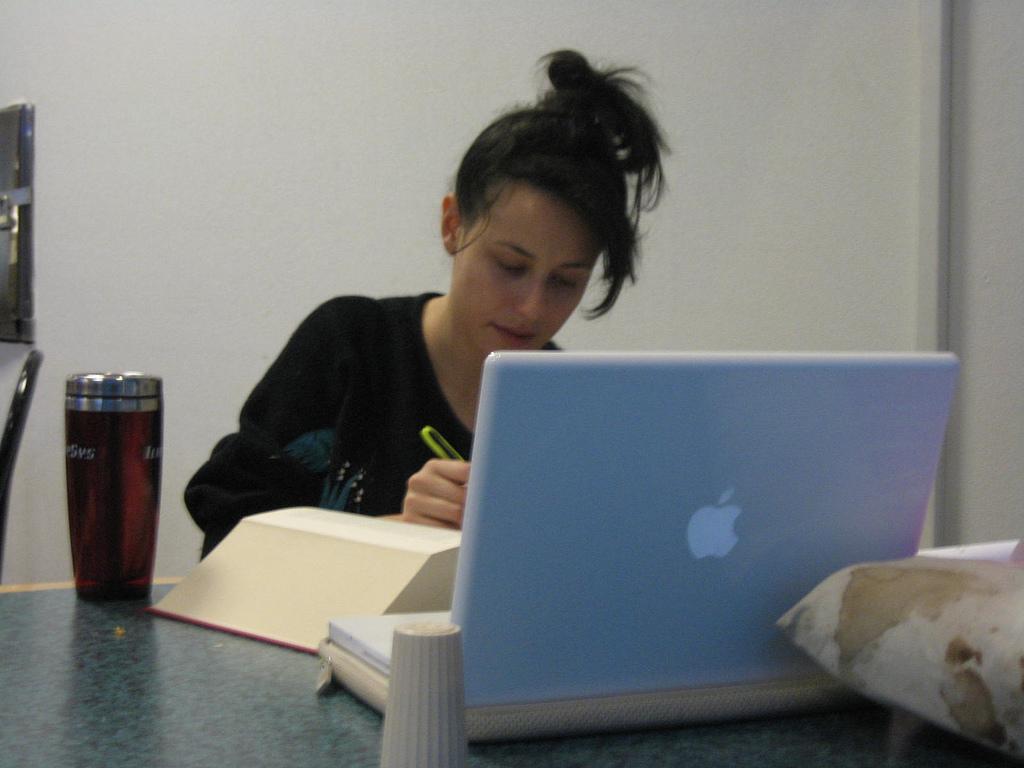Laptops in the Classroom—A Blessing or an Annoyance?
Why Your Laptop Might be Pissing Your Professor Off
June 1, 2011

Published: January 31, 2008
Ah, the good old days, when class was all about sketching elaborate doodles, passing notes full of gossip, and playing corny games on your graphing calculator. Students have always made sure that they have some secret pleasure to keep them from passing out face first on their desks during lectures. And just as fast as students created these tiny indulgences, teachers were mortifying these troublemakers by reading notes aloud and confiscating calculators with a vengeance. Then came the proliferation of the laptop—a power much more difficult to reckon with.
The laptop initially represented unrestricted freedom to both students and teachers. Teachers dreamed of using the laptop as an interactive tool to enhance their lessons and connect students to infinite information in real time. Students celebrated an opportunity to stray from lengthy lectures. But as the old saying goes, “With great freedom comes great responsibility”—a quality that many college students are severely lacking. Lately the classroom has transformed into a battlefield between teachers and technology, with professors desperately vying for the short-lived attention spans of their students.
“I am deeply concerned about laptop use in the classroom, particularly since in the age of multi-tasking, students are now no longer concentrating on what’s going on in the classroom, but rather what’s going on on their screens,” said Brian Rose, professor of communication and media studies at Fordham College at Lincoln Center (FCLC).
Dr. Joan Roberts, FCLC professor of natural sciences, feels that scientifically, students are severely disadvantaged in their ability to concentrate on lectures if they have a laptop on hand. “I teach an advanced course in neuroscience, and so I know how the brain functions. One of the most important things I try to teach all of my students is focused concentration. When a student is looking at a computer, they are not focused on what is being said and presented in class.”
Some professors, such as Joachim Rennstich, FCLC professor of political science, are frustrated by their students’ blatant display of apathy toward education and misuse of time in the classroom. “Students worked so hard to get into Fordham and pay considerable amounts of money for the privilege, so why spend your 75 minute opportunity to learn on doing something like browsing the web or checking on someone’s Facebook profile?” he said.
Though their love for social networking sites is strong, FCLC students are not blind to the fact that clicking their way through class will inevitably obstruct their education. “I almost always notice people looking on Facebook when a teacher is saying something valuable. So, I feel like people aren’t as present and engaged in class when on their computers,” said Tara DeVincenzo, FCLC ’10.
Others acknowledge the fact that, at times, laptop use not only distracts the owner of the computer, but also those surrounding them. “It does bother me when others use laptops in class because most of the time they are on AIM, Facebook, or any other Web site and that distracts the people around them,” said Joennis Almeida, FCLC ’08. Some students, such as Melanie Bernstein, FCLC ’09, find it hard to concentrate in the presence of laptops. “Sometimes it’s annoying when people are typing loudly and you’re trying to listen to a lecture,” she said.
Despite these obvious negatives, many students retain a positive attitude toward laptop use in the classroom. “I think, at times, that [laptops] do aid in the learning experience, because sometimes while in class, you need to look something up and it’s right at your fingertips, literally,” said Almeida.
Others find that laptops make note taking more effective. Elena Papageorgiou, FCLC ’08 said, “It helps get better notes because you can type faster and abbreviating is easier. I like notes better typed than written. They are clearer.” Bernstein agrees, “I think it’s actually kind of a good idea to bring a laptop to class because half of the time I can’t read the notes that I write and everything winds up being misspelled. At least laptops have spell check,” she said.
Although some faculty members currently harbor resentful feelings toward laptops in the classroom, certain professors are able to look beyond their troublesome effects and focus on the advantages of technology. “They can be a great tool to enhance your learning. I teach International Relations courses, so, for example, hopping over to Google Maps to look up a country can be very useful to provide a broader context of the issue being discussed in class. Or, would you know right now, this second, all the neighboring states of Iraq?” Rennstich said. Roberts integrates technology into her lessons but prefers that it remain outside of the immediate classroom. “I do encourage my students (science and non-science majors), as homework assignments, to look up primary sources of scientific information on accurate Web sites, such as Pub-Med,” she said.
For now, some teachers are in the midst of devising ways to win back their students’ focus. “I plan to institute a strict ban on “non-note taking” use of laptops in the classroom,” said Rose. “Admittedly, it might be tough to enforce, but I feel strongly that students (or their parents, or both) have paid a great deal of money to attend classes. Facebook is available 24 hours a day; a course meets for only 3 hours a week. It’s important to take advantage of the learning experience of the classroom, and not to the easy lure of cyberspace.”











Okuse Marvellous • Jan 6, 2021 at 11:54 am
This is top-notch. I have to voice my passion for your kindness giving support to those people that should have guidance on this important matter.